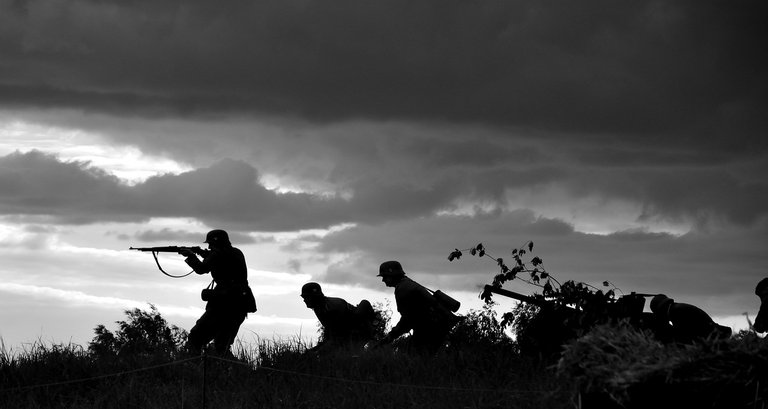Hello everyone, a very good day to you all. Today's topic is about the history of our own countries. But I want to do something a little different today. And that is to go over some of the background instead of the usual foreground. You see, I'm from Bangladesh. The Southeast part of Asia. Right under China if you want to look at it on the map. Surrounded by India. And the history of this country is mostly known to those who poke around history. There was a war in 1971 which many call the civil war of Pakistan and in my country it is called the integration war from which Bangladesh took birth.
Now what I said till now is the stuff that will easily find on the internet. But what I'm about to describe now is the background of it. And that stuff you probably will not find because this is some serious stuff. And these things are not supposed to be known by people who are not directly involved with the cause. So yeah make of that what you will. So my claim is that this was a proxy war between Russia and the USA during the cold war. And I have ample discussion in favor of this. So after 1947 when the British left the continent and effectively divided British India into India and Pakistan, both countries needed outside help. And yes it was in the wake of world war II. So at that moment in time there wasn't much outside help available. But if we fast forward to the '50s, then the whole power dynamic becomes a bit more clear as posed to our economies kick in and countries that were effectively maneuvering their own economic situations had prevailed. And obviously Russia and America went on a nuclear arms race after America actually detonated the first nuclear bombs on Japan. This nuclear arms race went on to become a conflict of ideologies. Capitalism and communism. So I won't go into that jargon anymore. Rather focus on the main point here. So Pakistan leaned towards America and India leaned towards Russia. It was only obvious that they picked sides. America trained and supplied the Pakistan Army with modern weapons, ammunition and military training. Well India received the same from Russia. So when this war of 1971 kicked in it had two motives. The more realistic and on the ground motive was to Free Bangladesh from Pakistan and the more proxy motive was to prove that a capitalist country can hold its own against a country that does not support capitalism. At least that's how America wanted to paint but actually India wasn't a communist state. They just had Russia as their friend. And the friend of my enemy is my enemy so India eventually became an enemy of America at that point. So when India and Russia jointly tried to free Bangladesh from Pakistan and show the world that an American allied country can't beat the Russian aligned coalition, Pakistan was in a bit of a pickle. Though the main credit goes to the fighters of my nation who made it happen. Actually. It's just the results that painted this picture. Throughout the war, both countries supplied arms and military training and training to the fighters on each side of the battle. So there was a good deal of support by both Russia and the bag even though they did not actively participate.
During the war, America sent a battleship in support of Pakistan, which Russia vetoed in the United Nations conference. This was an important point in the war. As if there were American troops on the ground or any American intervention, this war would have become a wide scale international conflict with both America and Russia actively participating and then it wouldn't have been confined to just the liberation of one country. Rather, it could have been another Korea.
So yes, as much as we should appreciate our liberation war fighters and how they bravely have fought with their lives to defend their homeland. We should also know the other side of the story and what this war could have been if certain measures weren't taken at certain times. Such knowledge would help us understand the significance of what happened even more by contemplating what could have happened.

 Your post has been curated from the @pandex curation project. Click on the banner below to visit our official website and learn more about Panda-X.
Your post has been curated from the @pandex curation project. Click on the banner below to visit our official website and learn more about Panda-X.